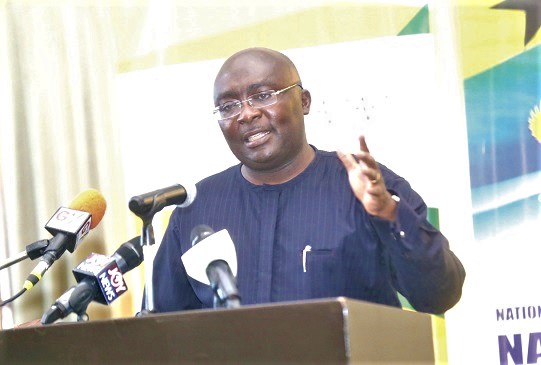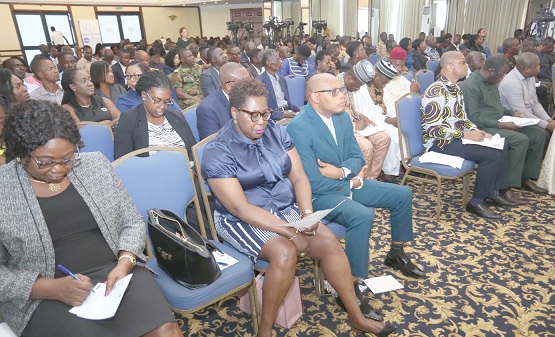
We’re leveraging technology to deal with corruption — Dr Bawumia
The government is leveraging technology, such as digitisation and the automation of institutions, to deal with corruption, the Vice-President, Dr Mahamudu Bawumia, has stated.
He said the introduction of technology was to bring about transparency and the disruption of corruption.
Dr Bawumia said this at a National Anti-Corruption Action Plan (NACAP) Conference in Accra yesterday.
The one-week conference is part of activities to commemorate this year’s International Anti-Corruption Day on the theme: “Mobilising national efforts and resources to combat corruption: Five years on”.
The Vice-President said the government prided itself on its strong anti-corruption stance and would, therefore, continue to partner both state and non-state organisations to fight corruption and build the nation on a solid foundation of ethics and integrity.
The NACAP was introduced to help the nation lay a foundation to bring corruption under control and build integrity in the country, he said.

Conference
The Commission on Human Rights and Administrative Justice (CHRAJ) and other stakeholders have been organising the NACAP conference annually to commemorate the
International Anti-Corruption Day since the plan was adopted by Parliament in 2014.
In 2017, the commemoration of the day was extended to one week.
The anti-corruption campaign is also described as the Anti-Corruption and Transparency Week (ACT Week).
Some of this year’s activities included a forum on money laundering, asset recovery and illicit financial flows from international partners.
There will also be a maiden Integrity Awards by the Ghana Integrity Initiative (GII) Consortium and another forum on corruption and human rights.
Digitisation
Dr Bawumia mentioned the introduction of the digital drivers’ licence and vehicle registration, the national identification system, the digital postal address system, the paperless port system, the E-Justice system and mobile money interoperability as some of the initiatives implemented by the government to reduce opportunities for corruption, particularly at the Driver and Vehicle Licensing Authority (DVLA).
He said the digitisation agenda would not only enhance transparency and accountability but also improve the efficiency of many government agencies in terms of service delivery and the prevention and elimination of corruption.
He said from next year, the government would provide the necessary support to ensure that the ACT Week and the NACAP Conference were organised under the auspices of a high-level NACAP Implementation Committee, to be chaired by the Chief of Staff.
Resources
The Vice-President further stated that the government had been empowering national anti corruption institutions by increasing their budgetary allocations.
For instance, he said, “the operational budget of CHRAJ was increased from GH¢1.8 million in 2016 to GH¢5 million in 2019 and GH¢12.2 million for the 2020 fiscal year.
Its overall budget, therefore, had been increased from GH¢16.8 million in 2016 to more than GH¢40 million in 2020”.
“For next year alone, CHRAJ will be given GH¢2.5 million to coordinate and monitor the implementation of NACAP. We are also supporting CHRAJ to rebuild the portion of its offices destroyed by fire in 2013 to ensure that it is able to execute its constitutional mandate effectively,” Dr Bawumia added.
Effects of corruption
The Commissioner of CHRAJ, Mr Joseph Whittal, said corruption undermined sustainable development and was also a major cause of poverty, deprivation and under-development.
Presenting a report on the state of corruption in the country, a Deputy Commissioner of CHRAJ, Mr Richard Quayson, said corruption continued to permeate the body politic and other facets of society.
He said the canker manifested itself in various forms, including bribery, misappropriation, embezzlement, conflict of interest, patronage and nepotism, which if not brought under control, could undermine the effective governance of the country.
Mr Quayson commended the media for stepping up their game in the area of investigative reports and exposé which had led to over 100 publications on corruption in the Daily Graphic and the Ghanaian Times this year.
He further urged the media to be bold by publishing the names of corrupt officials to shame such people, stressing that “the threat of corruption is real and we must counter it with all our energy and resources”.
